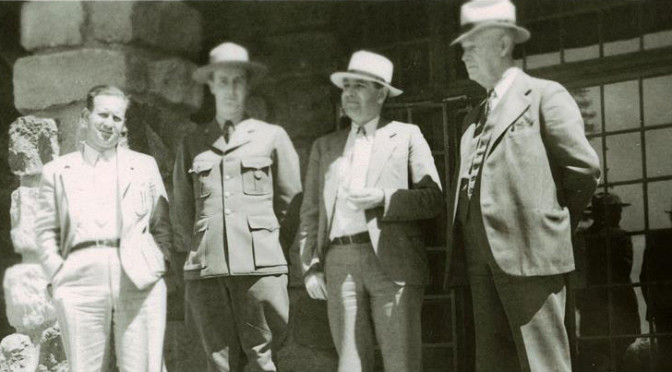When was that?
1978.
I’ve noticed Drury is still quoted a lot on Sierra Club calendars and publications like that.
Oh yes, he was a very interesting guy.
This is a continuation of an oral history interview with Larry Merriam on November 26, 1988, in Corvallis. We are starting the third section, which concerns the career of John C. Merriam. How did your grandfather obtain a teaching post in Berkeley?
He obtained his bachelor’s degree at age 18 from Lenox College in Hopkinton, Iowa. Grandfather subsequently came west to Berkeley with his parents. My great grandfather was interested in the banking business. He was in contact with the man who later become grandfather’s father-in-law. But the banking business didn’t work out for him and he went back to Iowa. Grandfather, however, stayed there and started graduate studies under Joseph LeConte, the famous professor who came from the University of South Carolina after the Civil War to be the grand man of geology at the University of California.
When did your grandfather do this?
This was in the late 1880s. In those days, there were not too many Ph.D. programs in this country and the thing to do was to go to Europe. And grandfather went to the University of Munich, and did his doctoral work under Von Zittel. His thesis is in German. I saw the dissertation when I gave a paper in Muchich many years later. His degree was granted in 1894 and from there he become an instructor at the University of California, rising to the rank of professor by 1912. This is a list of his papers from the Bancroft Library and it tells a little bit about his career. He came to the University of California as instructor of paleontology in 1894 and became Dean of Faculties in 1920. In 1921, he left to become President of the Carnegie Institution in Washington and stayed there until 1938. He was also a regent of the Smithsonian Institution from 1928-1938.


